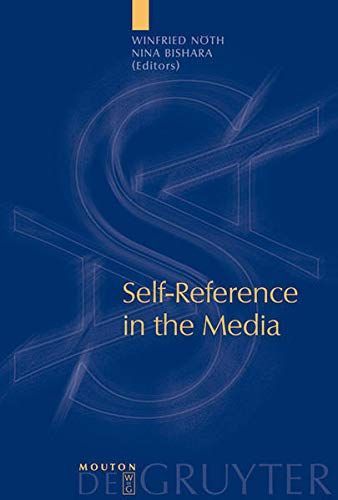
Self-Reference in the Media
This book investigates how the media have become self-referential or self-reflexive instead of mediating between the real or fictional worlds about which their messages pretend to be and between the audience that they wish to inform, counsel, or entertain. The concept of self-reference is viewed very broadly. Self-reflexivity, metatexts, metapictures, metamusic, metacommunication, as well as intertextual, and intermedial references are all conceived of as forms of self-reference, although to different degrees and levels. The contributions focus on the semiotic foundations of reference and self-reference, discuss the transdisciplinary context of self-reference in postmodern culture, and examine original studies from the worlds of print advertising, photography, film, television, computer games, media art, web art, and music. A wide range of different media products and topics are discussed including self-promotion on TV, the TV show Big Brother, the TV format "historytainment," media nostalgia, the documentation of documentation in documentary films, Marilyn Monroe in photographs, humor and paradox in animated films, metacommunication in computer games, metapictures, metafiction, metamusic, body art, and net art.